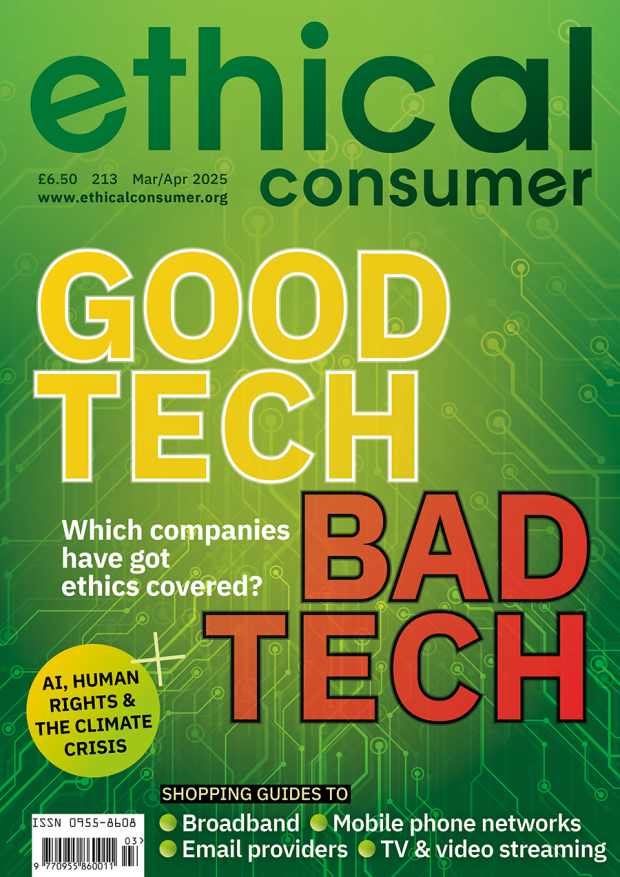Finding an ethical broadband provider
In this guide to internet broadband providers, we take a closer look at the energy use of connecting to the internet, how brands are powering their data centres, workers’ rights issues in big (and small) tech, and what’s in your router. We also spotlight local providers and examine what an ethical broadband provider looks like.
The guide covers the 'big four' UK providers (BT, Sky, TalkTalk and Virgin Media), as well as a range of small eco green providers, and some new entrants to the market. And with over 80 points separating those at the top from the bottom, and quite a few mid-range brands, there is scope to find a greener broadbrand provider to match your ethics.




